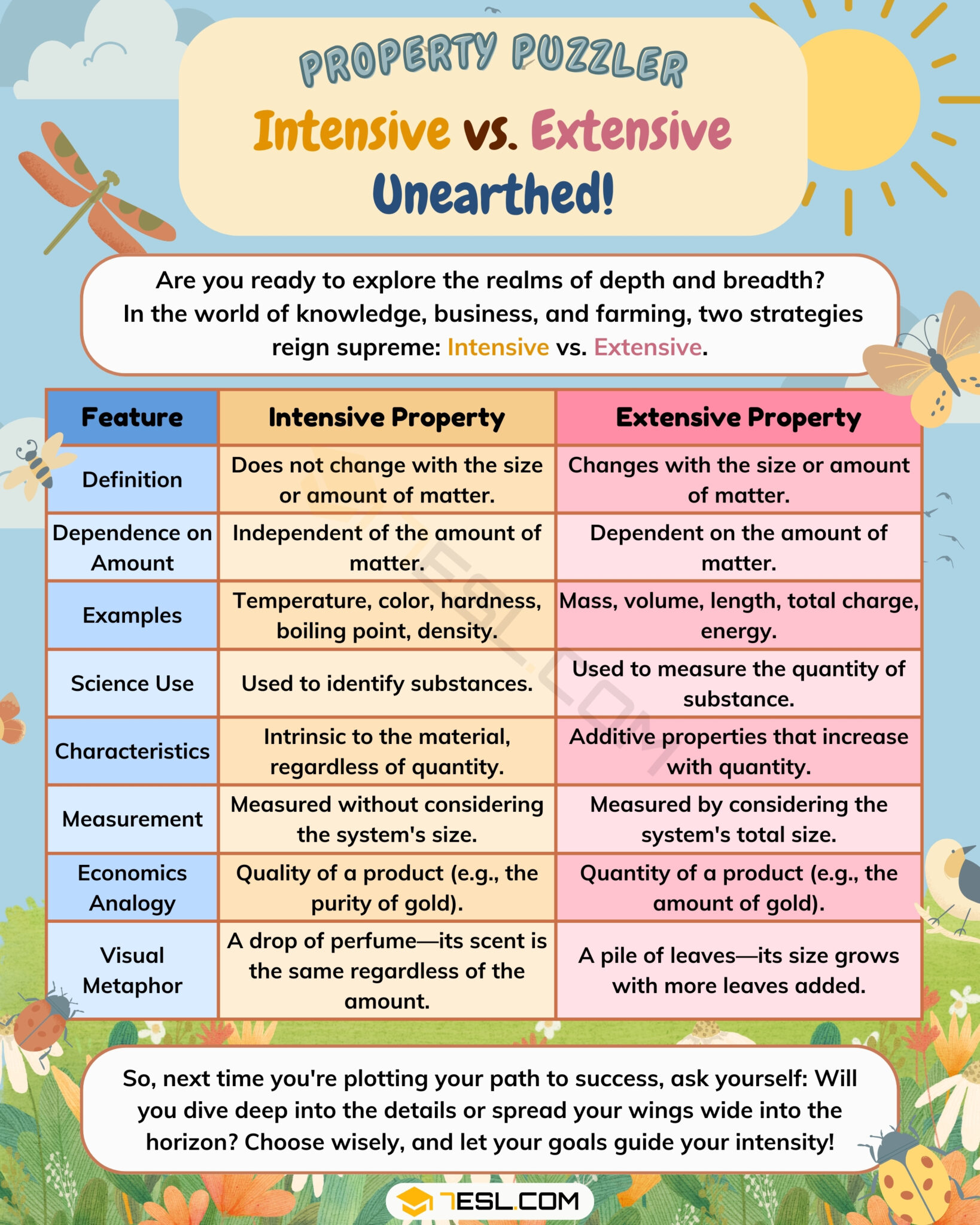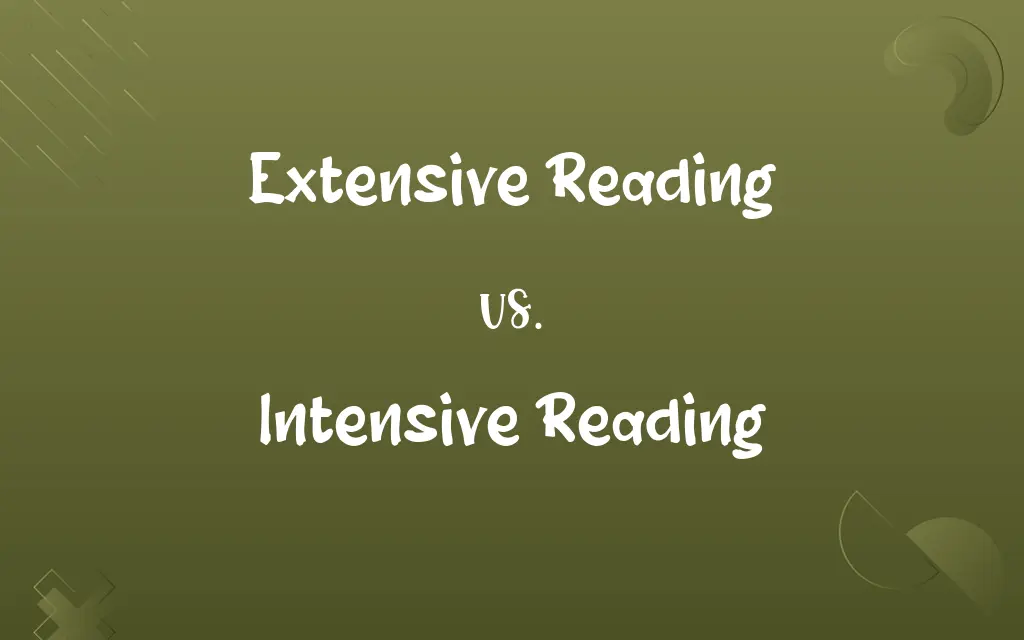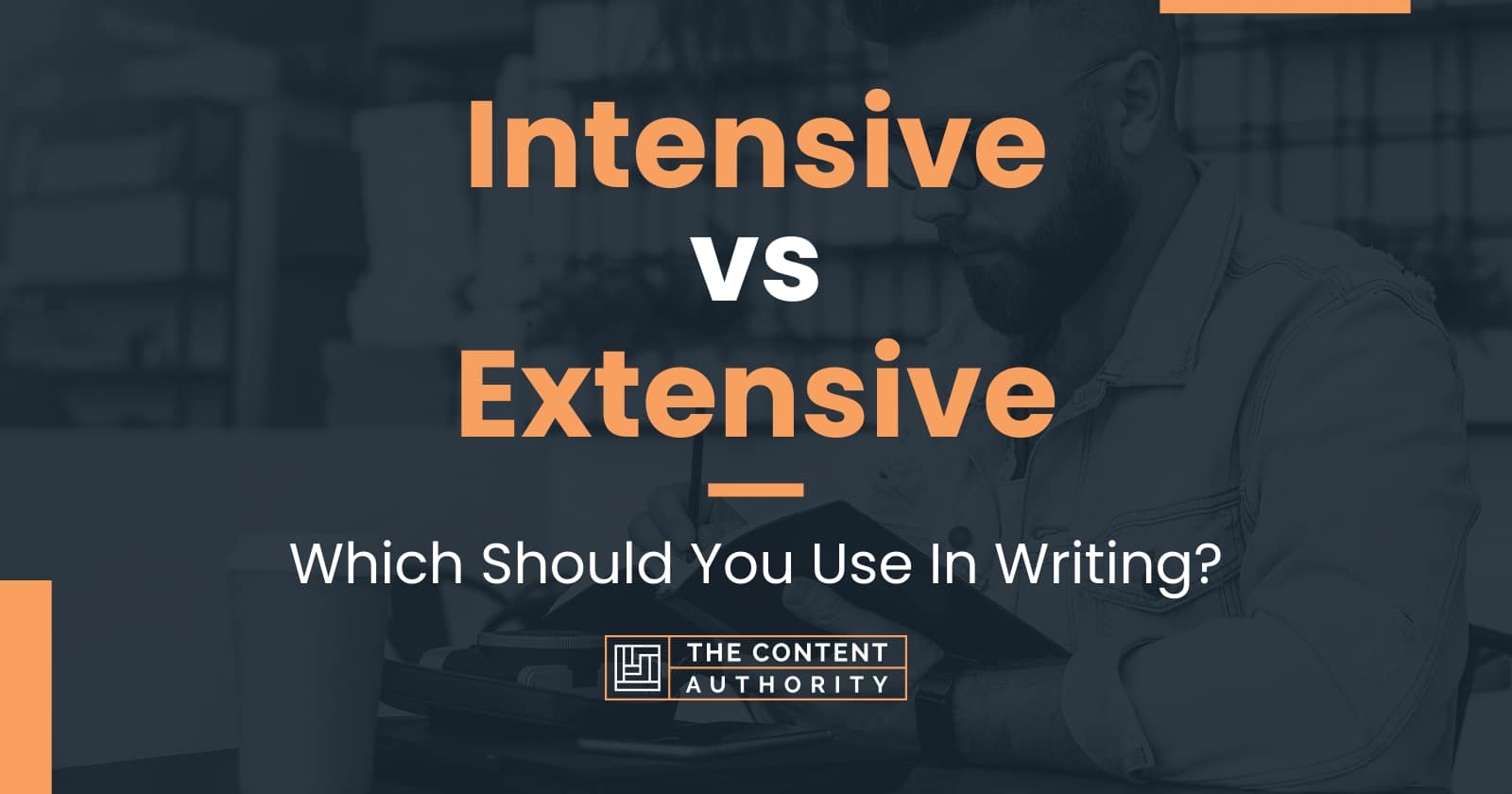Intensive Vs Extensive Reading - Extensive reading focuses on reading for pleasure, quantity, and overall language exposure, while intensive reading emphasizes depth of understanding, analysis, and attention to detail. Intensive and extensive reading are two methods of reading that can help you study a language. Intensive reading focuses on knowing the meaning of every word, while extensive. While intensive reading requires a high level of focus and deliberate effort, extensive reading is meant to be a fun and pleasurable experience,. While extensive reading is important for improving the reading speed and fluency of the reader, intensive reading develops critical thinking, analytical skills in the reader, along with. The two methods complement each other perfectly—intensive reading fills your language “toolbox,” while extensive reading enables you.
While intensive reading requires a high level of focus and deliberate effort, extensive reading is meant to be a fun and pleasurable experience,. Intensive reading focuses on knowing the meaning of every word, while extensive. While extensive reading is important for improving the reading speed and fluency of the reader, intensive reading develops critical thinking, analytical skills in the reader, along with. Extensive reading focuses on reading for pleasure, quantity, and overall language exposure, while intensive reading emphasizes depth of understanding, analysis, and attention to detail. Intensive and extensive reading are two methods of reading that can help you study a language. The two methods complement each other perfectly—intensive reading fills your language “toolbox,” while extensive reading enables you.
While extensive reading is important for improving the reading speed and fluency of the reader, intensive reading develops critical thinking, analytical skills in the reader, along with. Intensive reading focuses on knowing the meaning of every word, while extensive. Intensive and extensive reading are two methods of reading that can help you study a language. While intensive reading requires a high level of focus and deliberate effort, extensive reading is meant to be a fun and pleasurable experience,. Extensive reading focuses on reading for pleasure, quantity, and overall language exposure, while intensive reading emphasizes depth of understanding, analysis, and attention to detail. The two methods complement each other perfectly—intensive reading fills your language “toolbox,” while extensive reading enables you.
Intensive vs. Extensive Property What's the Difference? • 7ESL
While extensive reading is important for improving the reading speed and fluency of the reader, intensive reading develops critical thinking, analytical skills in the reader, along with. The two methods complement each other perfectly—intensive reading fills your language “toolbox,” while extensive reading enables you. Intensive and extensive reading are two methods of reading that can help you study a language..
Intensive vs. Extensive Property What's the Difference? • 7ESL
While intensive reading requires a high level of focus and deliberate effort, extensive reading is meant to be a fun and pleasurable experience,. Intensive and extensive reading are two methods of reading that can help you study a language. Intensive reading focuses on knowing the meaning of every word, while extensive. The two methods complement each other perfectly—intensive reading fills.
Intensive vs Extensive Reading (Process) Reading Comprehension
Intensive and extensive reading are two methods of reading that can help you study a language. Extensive reading focuses on reading for pleasure, quantity, and overall language exposure, while intensive reading emphasizes depth of understanding, analysis, and attention to detail. While extensive reading is important for improving the reading speed and fluency of the reader, intensive reading develops critical thinking,.
Extensive vs Intensive Reading Education
While intensive reading requires a high level of focus and deliberate effort, extensive reading is meant to be a fun and pleasurable experience,. Extensive reading focuses on reading for pleasure, quantity, and overall language exposure, while intensive reading emphasizes depth of understanding, analysis, and attention to detail. Intensive reading focuses on knowing the meaning of every word, while extensive. Intensive.
Intensive vs. Extensive Which Method Wins? ESLBUZZ
While intensive reading requires a high level of focus and deliberate effort, extensive reading is meant to be a fun and pleasurable experience,. The two methods complement each other perfectly—intensive reading fills your language “toolbox,” while extensive reading enables you. Extensive reading focuses on reading for pleasure, quantity, and overall language exposure, while intensive reading emphasizes depth of understanding, analysis,.
Extensive vs. Intensive Reading Luca Lampariello
Extensive reading focuses on reading for pleasure, quantity, and overall language exposure, while intensive reading emphasizes depth of understanding, analysis, and attention to detail. Intensive reading focuses on knowing the meaning of every word, while extensive. While intensive reading requires a high level of focus and deliberate effort, extensive reading is meant to be a fun and pleasurable experience,. The.
Extensive Reading vs. Intensive Reading — What’s the Difference?
Intensive reading focuses on knowing the meaning of every word, while extensive. Intensive and extensive reading are two methods of reading that can help you study a language. The two methods complement each other perfectly—intensive reading fills your language “toolbox,” while extensive reading enables you. While intensive reading requires a high level of focus and deliberate effort, extensive reading is.
Extensive Reading vs. Intensive Reading Know the Difference
While intensive reading requires a high level of focus and deliberate effort, extensive reading is meant to be a fun and pleasurable experience,. The two methods complement each other perfectly—intensive reading fills your language “toolbox,” while extensive reading enables you. Extensive reading focuses on reading for pleasure, quantity, and overall language exposure, while intensive reading emphasizes depth of understanding, analysis,.
Intensive vs Extensive Which Should You Use In Writing?
Extensive reading focuses on reading for pleasure, quantity, and overall language exposure, while intensive reading emphasizes depth of understanding, analysis, and attention to detail. While intensive reading requires a high level of focus and deliberate effort, extensive reading is meant to be a fun and pleasurable experience,. While extensive reading is important for improving the reading speed and fluency of.
Extensive vs. Intensive Reading Luca Lampariello
The two methods complement each other perfectly—intensive reading fills your language “toolbox,” while extensive reading enables you. While extensive reading is important for improving the reading speed and fluency of the reader, intensive reading develops critical thinking, analytical skills in the reader, along with. Intensive reading focuses on knowing the meaning of every word, while extensive. While intensive reading requires.
Intensive Reading Focuses On Knowing The Meaning Of Every Word, While Extensive.
The two methods complement each other perfectly—intensive reading fills your language “toolbox,” while extensive reading enables you. While extensive reading is important for improving the reading speed and fluency of the reader, intensive reading develops critical thinking, analytical skills in the reader, along with. Extensive reading focuses on reading for pleasure, quantity, and overall language exposure, while intensive reading emphasizes depth of understanding, analysis, and attention to detail. While intensive reading requires a high level of focus and deliberate effort, extensive reading is meant to be a fun and pleasurable experience,.









